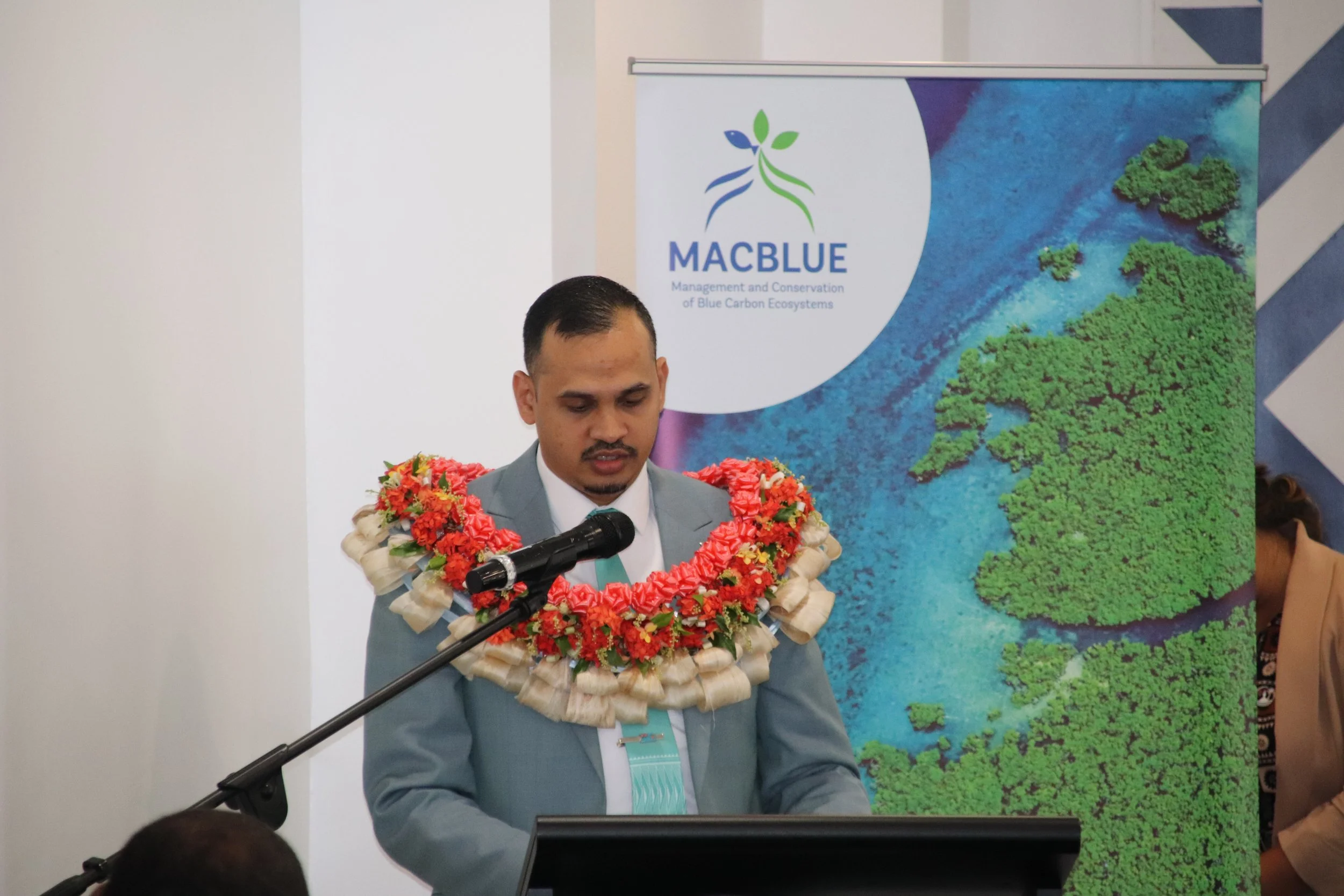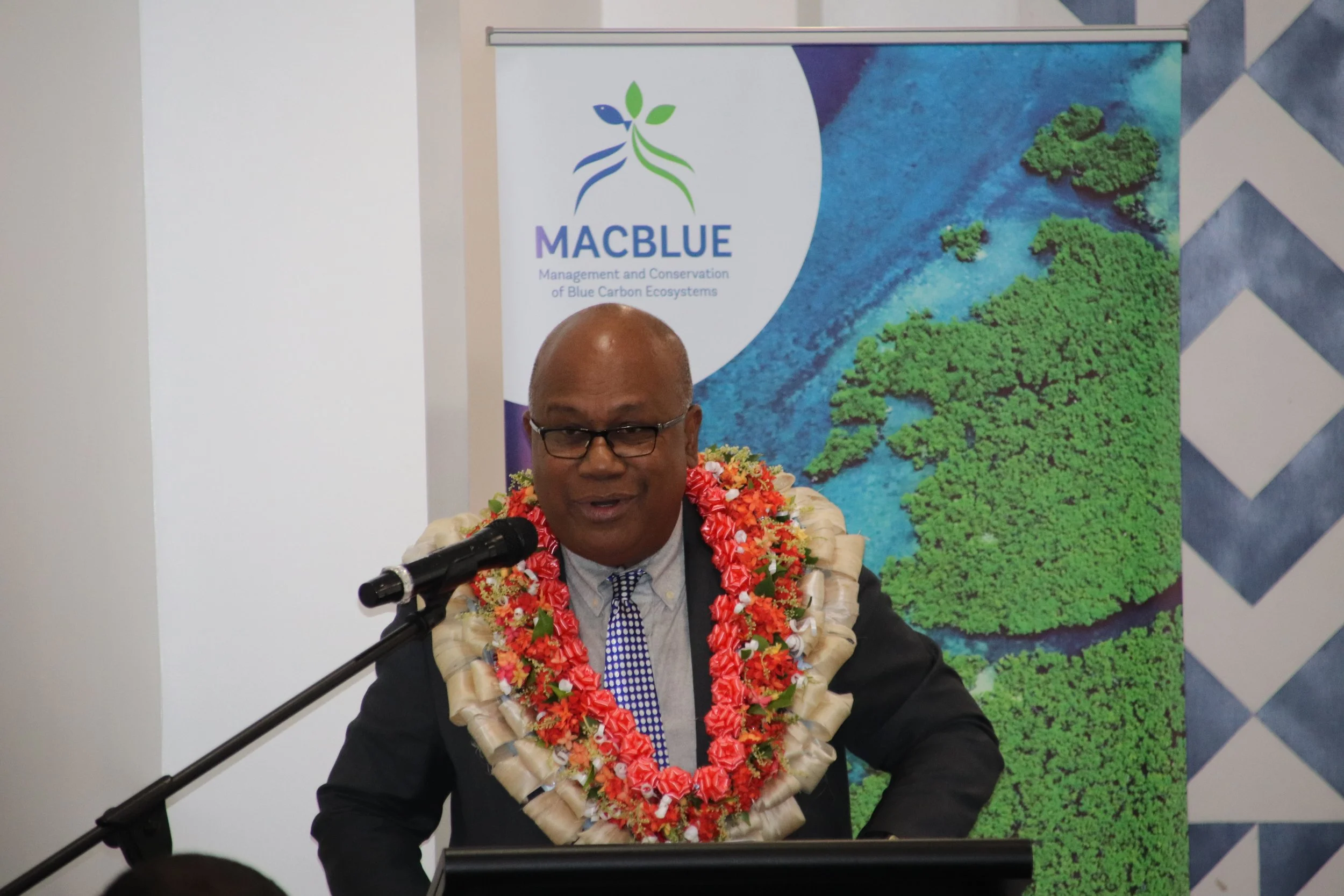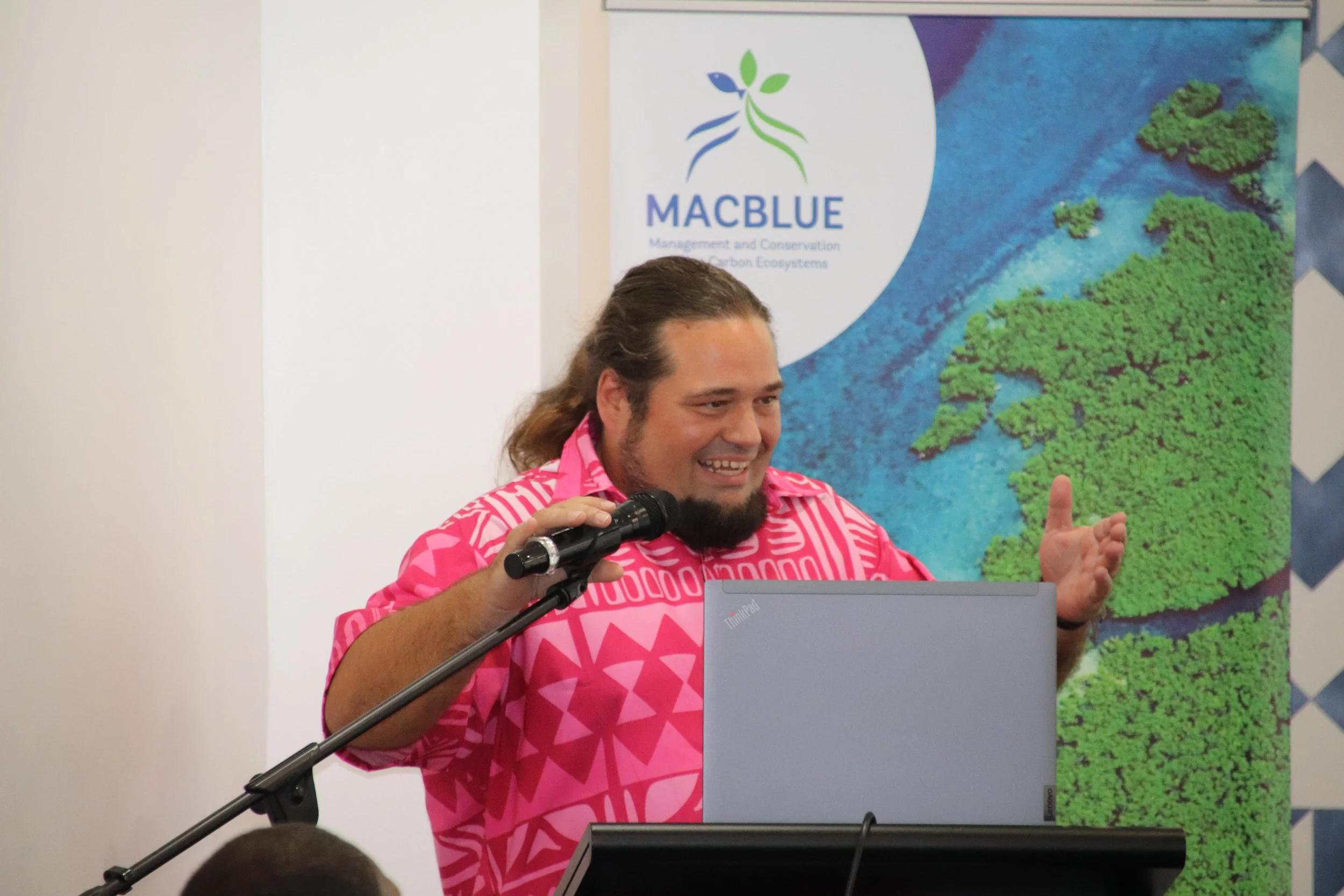Fiji Concludes MACBLUE Project with Closing Event
Community members joins the Permanent Secretary for Environment and Climate Change Dr Sivendra Michael and SPREP Director for Biodiversity Conservation and Fiji office Mr Amena Yauvoli during the launching of the knowledge products
Suva, Fiji – 23 October 2025 – The MACBLUE project partners, the Ministry of Environment and Climate Change, Secretariat of the Pacific Regional Environment Programme (SPREP), the Pacific Community (SPC), and the Deutsche Gesellschaft für Internationale Zusammenarbeit (GIZ), gathered yesterday in Suva to mark the successful closing of the project in Fiji.
This initiative, implemented across Fiji, Papua New Guinea, Solomon Islands, and Vanuatu, has significantly advanced the conservation and sustainable management of coastal ecosystems, including mangroves and seagrasses.
Since its inception in 2022, the MACBLUE Project has supported updated mapping and monitoring of seagrass and mangrove ecosystems at scale across Fiji, Papua New Guinea, Solomon Islands, and Vanuatu. This was made possible through SPC’s Digital Earth Pacific (DE Pacific), a free, open, public technology infrastructure that makes decades of satellite data freely accessible to governments, researchers and communities. This platform powers MACBLUE’s mapping and monitoring efforts. The project has conducted rapid biodiversity and threat assessments, standardised carbon stock measurements, and provided national training on GIS mapping and carbon assessment. The project also reviewed relevant legal frameworks, supported partner countries in international environmental negotiations, and produced valuable knowledge products and awareness materials.
Dr. Sivendra Michael, Permanent Secretary for Environment and Climate Change, emphasised the importance of integrating legal considerations into national policies during the completion of the MACBLUE Project.
Ministry of Environment and Climate Change Dr Sivendra Michael
“The completion of the MACBLUE Project marks a significant milestone in Fiji's environmental conservation efforts,” he stated.
“This initiative not only supports our national objectives to enhance climate resilience and promote sustainable management of our blue carbon ecosystems, but it also brings attention to the importance of embedding legal and policy frameworks that ensure long-term accountability and enforcement.”
Mr. Amena Yauvoli, Director of Biodiversity Conservation at SPREP, remarked that the MACBLUE Project has been instrumental in empowering Pacific communities to take active roles in preserving their coastal ecosystems.
SPREP Director of Biodiversity Conservation Mr Amena Yauvoli
“This collaborative effort exemplifies our commitment to safeguarding biodiversity and enhancing climate resilience in the Pacific region, as well as addressing a long standing gap in blue carbon data,” he said.
“The blue carbon and carbon stock assessments carried out through this project give us a clearer picture of how much carbon is stored in our coastal ecosystems, like mangroves and seagrasses. This information is crucial for shaping national climate policies and helping communities benefit from conservation efforts in the long run. It also calls for a collective regional action to continue the momentum on blue carbon projects to strengthen our knowledge and capacity in blue carbon ecosystems .”
Ms. Rhonda Robinson, Director of the Geoscience, Energy and Maritime Division at SPC, stated
“The work on mapping seagrass and mangrove habitats has been especially important; it not only helps us understand where these vital ecosystems are located but also supports efforts to measure blue carbon and guide national planning for coastal protection and climate action,” said Ms. Robinson.
Mr. Raphael Linzatti, Project Director at GIZ, added the success of the MACBLUE project highlights the importance of integrated approaches in addressing environmental challenges.
“As a committed international cooperation partner, GIZ is proud to support Pacific Island countries in strengthening climate resilience and sustainable resource management. One of the key strengths of this project has been its emphasis on regional collaboration, bringing together countries, institutions, and communities to share knowledge, harmonise methodologies, and build collective capacity,” said Mr. Linzatti.
Through these efforts, MACBLUE has strengthened partnerships among governments, communities, and regional stakeholders to improve coastal ecosystem management and climate resilience.
To date, the project has conducted capacity-building workshops in Papua New Guinea, Solomon Islands, and Fiji, with over 100 participants from the region trained on blue carbon assessment, carbon stock assessment and seagrass and mangrove mapping.





